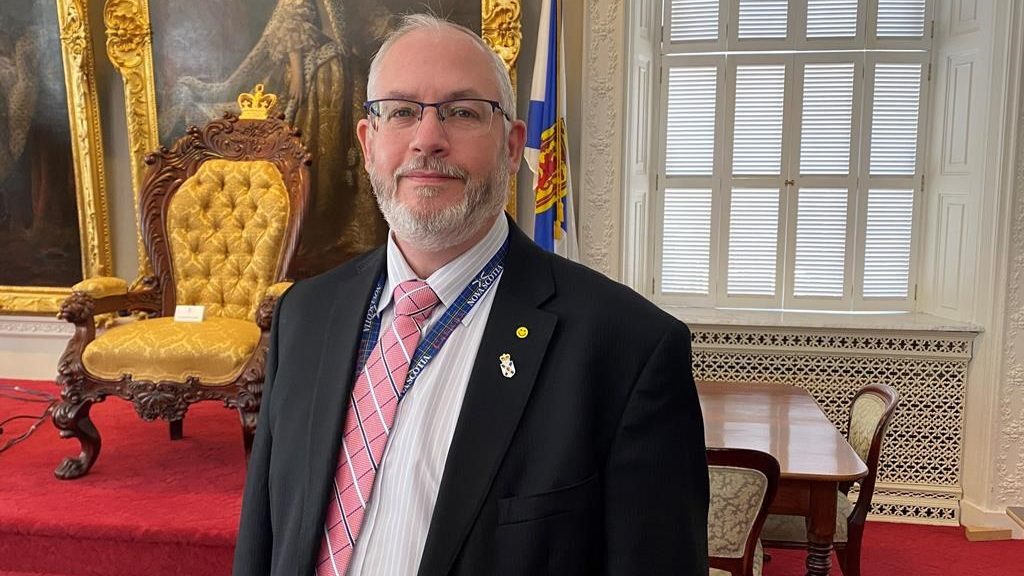‘Killing Lincoln’ melds documentary and drama for ‘new animal’ says Campbell
Posted Feb 14, 2013 03:04:50 PM.
This article is more than 5 years old.
TORONTO – It wasn’t hard for history buff Billy Campbell to wrap his head around the novel approach used for the docu-drama “Killing Lincoln.”
Not quite a drama and not quite a documentary, National Geographic’s two-hour feature melds elements from each genre to create a unique hybrid the “Once and Again” star says takes the best from both worlds.
“It’s kind of a new animal,” Campbell said in a recent interview from Washington, D.C.
“In the past you’ve seen documentaries and you have your historical experts and there are talking heads and then in the background you see some actors yelling at each other on a battlefield. You might see some feet stomping through mud but you don’t really go into the full-fledged dramatic scenes. But this is a different, brand new animal and I think it’s kind of exciting. Fully-fledged, dramatic scenes interspersed with the historical perspective from the narrator.”
Campbell plays the legendary war president Abraham Lincoln, adding an unusual degree of star power to detailed dramatizations that trace the moments leading up to and following the assassination on April 14, 1865.
Jesse Johnson, son of actors Don Johnson and Patti D’Arbanville, stars as actor-turned-assassin John Wilkes Booth, depicted here as an ardent racist with an ego-driven flair for melodrama.
Their lengthy scenes mark a stark departure from those of traditional historical series, which generally feature anonymous actors in wordless scenes that take a backseat to expert commentary and archival footage and photographs.
Instead of historians, “Killing Lincoln” features “Saving Private Ryan” star Tom Hanks as narrator. It cuts frequently to his sombre visage for a dose of facts, dates and colour as the Civil War drama progresses.
“He’s the perfect person for it. He has the sort of accessibility and at the same time the gravitas to really communicate the kind of seriousness, the importance of the whole thing,” says Campbell, who most recently appeared on the AMC murder mystery “The Killing.”
“And, what’s more, not a lot of people know, but Tom is a direct descendant of the Lincoln family — Abraham Lincoln’s mother was Nancy Hanks and Tom is a direct descendant of Lincoln’s mother.”
The celebrity connections extend behind-the-scenes as well — “Killing Lincoln” is based on the bestselling book co-authored by Fox News personality Bill O’Reilly and is executive produced by Ridley and Tony Scott’s production company. It’s dedicated to Tony Scott, who passed away last summer.
Meanwhile, it coincides with the success of Steven Spielberg’s sprawling theatrical saga “Lincoln,” which heads into the upcoming Academy Awards bash with a leading 12 nominations.
Such attention should bring curious viewers over to “Killing Lincoln” for added insight into the final days of the 16th president of the United States, Campbell says.
“I think it would make a very nifty sort of companion piece,” he said of his project.
“I haven’t seen Mr. Spielberg’s ‘Lincoln’ yet but I look forward to it. But from what I understand it doesn’t really cover the assassination. This is primarily about the assassination.”
And while comparisons are inevitable between his turn and the Oscar-nominated performance of Daniel Day-Lewis, Campbell says he made a point of not watching other famous portrayals while preparing for the role.
“The one that came bubbling out of my subconscious when I first got this job was Gregory Peck,” he says of the legendary actor, who played the abolitionist president in the ’80s TV miniseries “The Blue and the Gray.”
“But I hadn’t seen even his in many, many years. And then I made a kind of concerted effort not to for a while.”
Campbell says his biggest concern was staying true to history itself, noting that painstaking efforts were made to keep “Killing Lincoln” as authentic as possible.
“Virtually every line of dialogue in the movie is accounted for historically — through memoirs, eye-witness accounts and so forth,” he says.
As an example he points to one scene in which Lincoln visits his ailing secretary of state, William Seward.
“As the camera pans over there’s a bowl of fruit and a couple of books on the trunk at the end of the bed. And though it’s never mentioned, those two books are the ones historically that Seward’s daughter had been reading to him and the bowl of fruit was delivered by Secretary (Edwin) Stanton only a couple of hours before that. Every frame of the film has things like that in it.”
Of course, there’s plenty of inherent drama, too. The feature details all the elements that have arguably made this the most notorious crime in American history, noting that Booth’s attack on Lincoln involved a broader conspiracy in which he simultaneously plotted the murders of Seward and Vice President Andrew Johnson.
Campbell says his childhood was steeped in Lincoln lore. He grew up in Charlottesville, Va., about 60 minutes away from where the series was shot in Richmond.
“I grew up sort of running around barefoot on Civil War battlefields. You can hardly spit in Virginia without hitting a Civil War battlefield. And so I was a bit of a Civil War buff and my mother took me to a re-enactment when I was 16 and so for a few years after that I did re-enactments and of course, in my reading about the Civil War you can’t read about the Civil War without reading about Lincoln.”
These days, Campbell says he lives mostly in Vancouver. He fell in love with the picturesque city while working there in 1998 and bought a place about six years ago.
“I’m working on my landed immigrant status to Canada so that I’ll be able to stay there as long as I want,” he says.
“I’m very, very partial to Canada. I went to Canada as a child with my family, had a little cottage in the lakes region north of Toronto…. I happen to prefer Canadian culture and Canadian politics. As crazy as you might think them to be, I think they pale in comparison to American politics, American culture. So I’m very happy in Canada. People are very laid back and you don’t have politicians endlessly spouting off about which group of people are moral, immoral or what-the-hell-ever.”
An avid sailor, Campbell volunteers aboard a training vessel out of Lunenberg, N.S. called the Picton Castle and in the last two-and-a-half years had a wooden schooner built for himself in Lunenberg.
As for the lingering fascination with Lincoln, Campbell says there’s no question the man’s life and death holds enduring appeal.
“It defines us. Who knows what we’d be like in the States now if Booth had not killed Lincoln?”
“Killing Lincoln” airs on National Geographic on Sunday.










